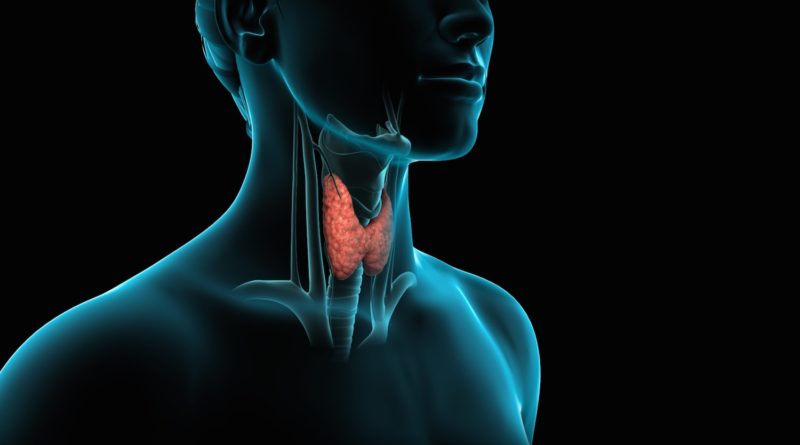+10 Symptoms to Know If You Have Thyroid Problems
“How do Know if I have Thyroid problems?” is a question asked by so many people worldwide when they feel some symptoms like fatigue, weight gain, depression, menstrual problems, sweating, forgetfulness, anxiety, all at the same time, and the information has been so spread that the first thing they think about is in having thyroid gland problems on producing thyroid hormone.
This is because the thyroid hormone is well known for its multiple functions, helping to maintain the brain, muscles, heart, and other organs and helping the body to use energy appropriately. So when something goes as not it should be that precedes to overexcited thyroid or underactive thyroid, your metabolism either races up too high or reduces way down, correspondingly. These two disorders – hyper and hypothyroidism – have an impact on the thyroid in diverse ways and as result have different consequences.
You sure have heard so many symptoms that are associated with the thyroid gland and thyroid hormone secretion; continue reading and you’ll find out why.

What is The Thyroid Gland and How Does it Function?
The thyroid gland is a tiny, butterfly-shaped body part in your throat, and it’s very significant to your physical condition and health. The thyroid is part of the endocrine system, which is in effect a group of glands. Glands secrete hormones that control mood and different roles in the body.
The thyroid produces hormones that influence many vital performances, counting metabolic rate regulation, heart rate, brain development, growth, skin maintenance, muscle control, fertility, mood, digestion, bone preservation, and temperature control. The good supply of iodine from the diet is essential to have correct functioning on the thyroid gland.
As the endocrine system is interlinked and works like an orchestra, there are other glands and hormones involved in the process, which are the hypothalamus in the brain that release thyrotrophin hormone and pituitary gland that releases other thyroid stimulating hormones. This is called the hypothalamic-pituitary-thyroid axis, which is a feedback circle.
To monitor thyroid functioning in your body, doctors evaluate thyroid-stimulating hormone and free thyroid hormones. Generally, little alterations in free thyroid hormones conclude in big variations in thyroid stimulating hormone. This is because of the main role thyroid plays in your organism.
Hormones Produced by Your Thyroid Gland
The thyroid gland secretes calcitonin, T4 or thyroxine/tetraiodothyronine and T3 or triiodothyronine into the circulatory system. These hormones are formed by the use of iodine of the foods you consume, they regulate the level at which cells and organs chance nutrients into energy and the number of oxygen cells consume.
T4 hormone is produced in high quantities but is not very active, it is transformed into T3 instead, and this process is made thanks to an enzyme that removes one of the iodine atoms of the molecule. These two hormones are responsible for metabolism and cells speed regulation.
This explains why when your T3 and T4 ranks are down your heart speed may be slower than usual and you
might have constipation or weight gain. On the contrary, if your T3 and T4 ranks are higher than usual you may have a fast heart speed and diarrhea or weight deficit.
How Can I Tell If I have Thyroid Problems?
There are countless disorders and diseases related to the thyroid. They can result at any age and can develop from multiple reasons like diseases, injury or dietary lack. However, principally they can be caused for the subsequent complications:
 Excess or deficiency of thyroid hormone, causing hyperthyroidism and hypothyroidism correspondingly.
Excess or deficiency of thyroid hormone, causing hyperthyroidism and hypothyroidism correspondingly.- Inflammation of thyroid gland or Thyroiditis, this can decrease the number of hormones created.
- Thyroid Cancer
- Lumps or nodules inside the thyroid.
- Iodine deficiency
Nevertheless, how do you really know if you have any of these complications? Here are some symptoms:
|
Hypothyroidism
|
Hyperthyroidism
|
| · Slow heart frequency
· Hypertension · Somnolence · Constipation · Dry skin and hair · Cold sensitivity · Weight gain · Fatigue and tiredness · Hoarse voice · Depression · Muscle and joint ache |
· High heart frequency
· Anxiety · Insomnia · Weight loss and high appetite · Excessive diaphoresis · Dry skin and blushed · Heat sensitivity · Muscle weakness · Sleep disturbances · Hair loss
|
Another condition produced by thyroid disorder is Grave’s disease, this is an autoimmune disease in which the immune system starts to attack the thyroid gland and causes to turn into overactive, producing hyperthyroidism as consequence.
Another sign is a bulge on the neck, called goiter, in which you can besides suffer an augmented heart rate.
The thyroid disorders can also lead to cancer, making you feel any of the symptoms mentioned before, including the presence of nodules.
Who is more likely to be Affected by Thyroid Conditions?
Thyroid disorders have an impact on an approximated of 25 million Americans, and as numerous as 60 percent of individuals with thyroid condition don’t know they have a difficulty. According to different studies, one of every eight women will acquire a thyroid condition throughout their lives so they are more likely to be in a chance of a thyroid problem.
Hypothyroidism is much more regular, with around 1 in 20 individuals in America analyzed with the illness after the age of 12. Hyperthyroidism is less frequent, although is a little easier to identify, with a prevalence amount of 1 in 100.

Thyroid complications can happen because of cancer therapies. You may acquire nodules straight on the thyroid gland too, but these typically aren’t cancerous and don’t essentially produce any problems with thyroid behave.
Occasionally gravidness can cause thyroid ranks to vary. Hypothyroidism is more usual. Thyroid stages may not regularize for about a year after relief. Hypothyroidism is a danger aspect for females after menopause too.
Always Look After an Improved Health
To have a healthy thyroid, iodine is needed to produce thyroid hormones. The greatest method to get iodine is throughout healthy nutrients, like seafood and dairy foods. You can obtain it by flavoring your meals with iodized salt. Iodine was first included to salt in America to fight goiter.
If you feel any of the symptoms mentioned earlier of thyroid complaints — both overactive thyroid and underactive thyroid — you should go with your doctor. They can command exams to define if your thyroid hormone stages are in the standard limit, or if they are not, can give therapies or medications to relieve your warning signs.
It’s essential to think through the other major variances concerning hypothyroidism and hyperthyroidism as well. These involve differences in risk issues, analysis, and general outlook.
See more in https://www.thegoodluck.com/classifieds/health-and-wellness/


 Excess or deficiency of thyroid hormone, causing hyperthyroidism and hypothyroidism correspondingly.
Excess or deficiency of thyroid hormone, causing hyperthyroidism and hypothyroidism correspondingly.

